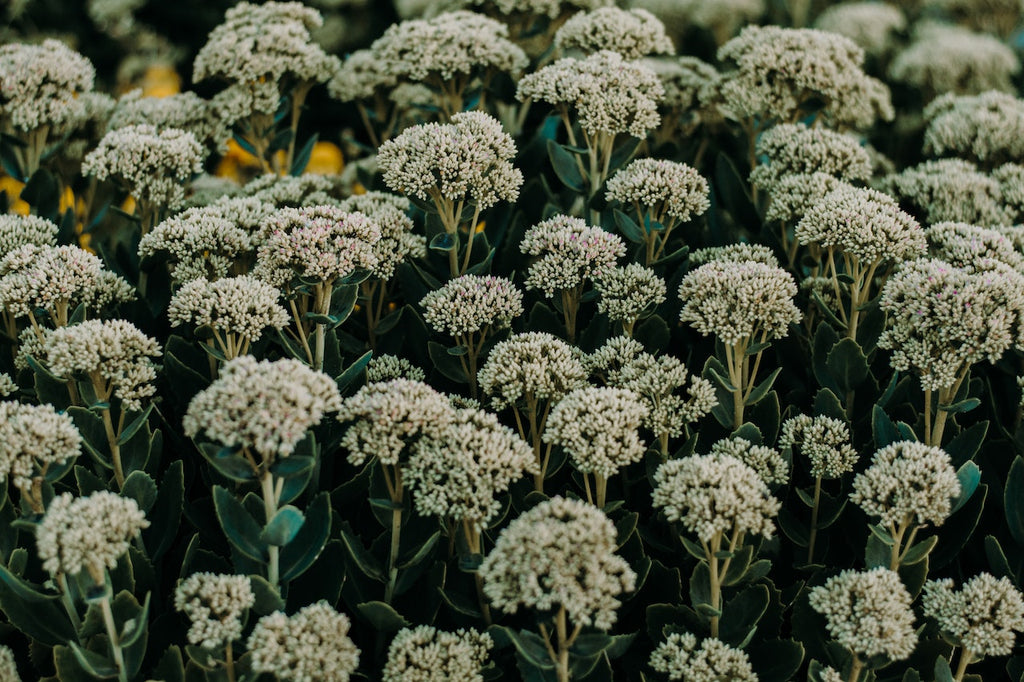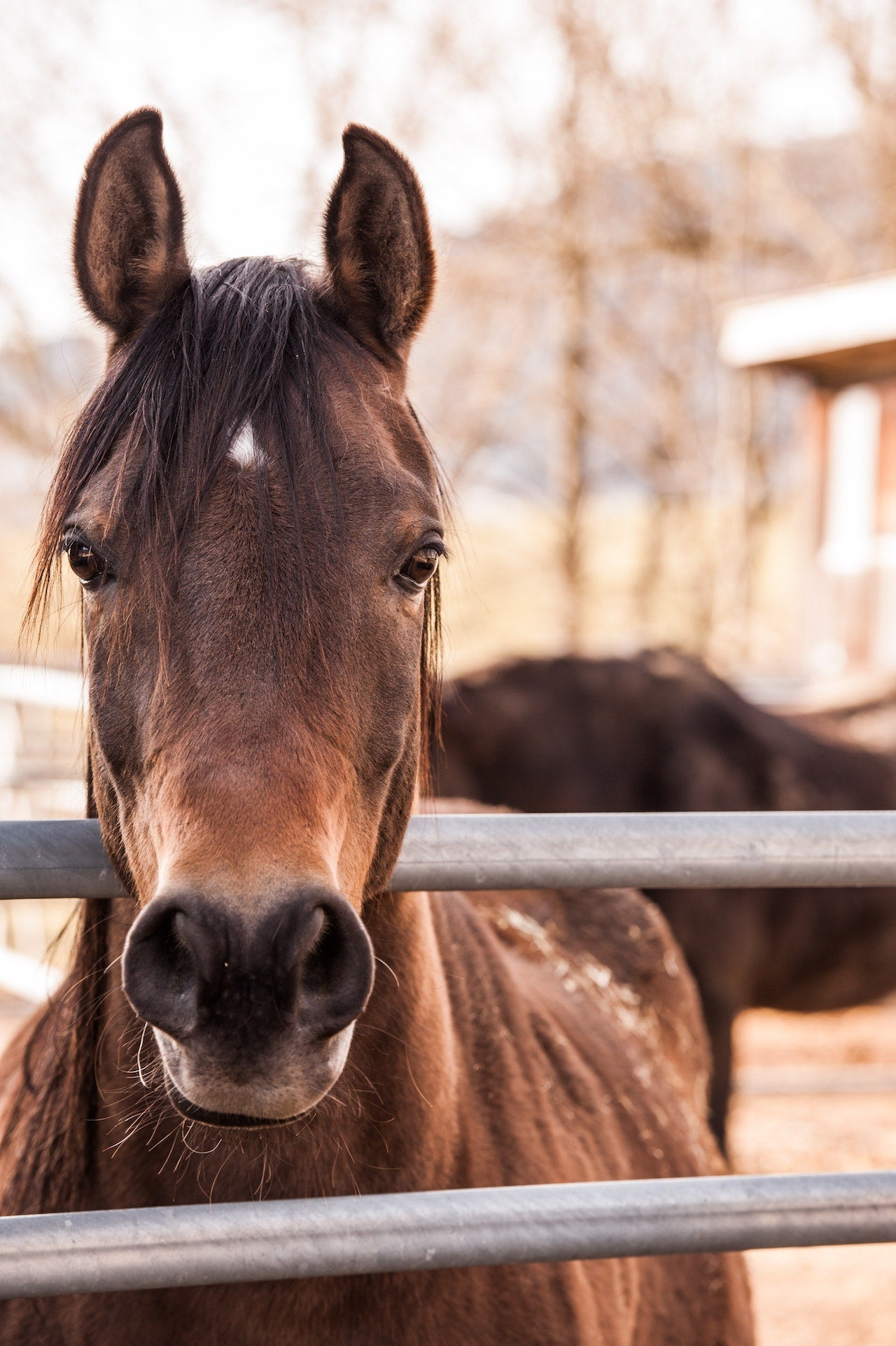
Yarrow: An Ancient Herb for Modern Equestrians
Nature never fails to astound us with its extraordinary variety of plants, each with special qualities that may enhance different facets of our life. Yarrow (Achillea millefolium), an herbaceous plant with a long history and reputation for medical benefits, is an example of a botanical wonder. The benefits of yarrow have long been appreciated by humans, but it is now time to explore its possibilities as a powerhouse of nutrients for our equine friends.
Horse lovers and herbal experts both have been interested in yarrow because of its exquisite clusters of white or yellow flowers and feathery leaves. Beyond its aesthetic appeal, yarrow has a variety of minerals and bioactive substances that may improve the well-being of horses.
This article will examine the essential vitamins, minerals, and phytonutrients that make up yarrow's nutritional profile and reveal their nutritional significance. We will also look at yarrow's possible advantages for horses.
Although Yarrow has a lot of potential, we also need to address safety issues. We'll look into individual sensitivities and possible hazards from excessive intake. Join us as we explore the benefits of yarrow and how it may completely alter how horses are fed and cared for in the future.
Can Horses Eat Yarrow?
Yes, horses can consume yarrow in moderation. Yarrow may include a variety of essential nutrients and bioactive compounds, including vitamins, minerals, flavonoids, and volatile oils. Numerous potential advantages for the health of horses have been associated with these compounds. It does, however, contain several substances that, if ingested in excess, can be hazardous to horses.

Yarrow
The herbaceous blooming plant yarrow, or Achillea millefolium as it is named scientifically, is a member of the Asteraceae family. Although it originated in Europe and Asia, it has subsequently become a native of many places throughout the world. Yarrow is renowned for its adaptability and capacity to flourish in a variety of settings, including meadows, fields, and by the sides of roadways.
Small, flat-topped bunches of fragile flowers, which may be white, yellow, pink, or any shade in between, are present on this plant. It has delicate, feathery leaves that resemble ferns. The yarrow plant blooms in the summer, luring butterflies and bees to its nectar-rich blossoms.
The use of yarrow in traditional medicine goes back a long way. It has been prized for its many alleged advantages and adaptability. Yarrow has been used for centuries to cure wounds, lower fevers, ease stomach problems and encourage calmness. Numerous bioactive substances found in the plant, including flavonoids, tannins, sesquiterpene lactones, and volatile oils, support the possibility of medicinal benefits.
Nutritional Composition of Yarrow
Vitamins
Yarrow offers several vitamins, including thiamine (B1), riboflavin (B2), and niacin (B3), as well as vitamins C, A (in the form of beta-carotene), and K. These vitamins are crucial for maintaining metabolism, the immune system, tissue repair, and general health.
Minerals
Calcium, potassium, magnesium, phosphorus, zinc, and iron are abundant minerals in yarrow. These minerals are essential for maintaining strong bones, electrolyte equilibrium, healthy muscles, and oxygen delivery throughout the body.
Flavonoids
Yarrow contains flavonoids, strong antioxidants that assist in preventing oxidative stress on cells. Flavonoids with anti-inflammatory qualities, such as apigenin, luteolin, and quercetin, could support the therapeutic benefits of yarrow.
Tannins
A kind of polyphenol chemical known as tannins is present in yarrow. Because they encourage normal digestion and lessen diarrhoea, tannins have astringent characteristics that can assist digestive health.
Essential Oils
The azulene, chamazulene, and cineole essential oils found in yarrow help to give it its characteristic scent. These oils' potential antibacterial, anti-inflammatory, and analgesic effects have been investigated.
The Benefits of Yarrow for Horses
Support for Digestive Health
Yarrow is said to help horses with their digestion. It includes tannins with astringent qualities that might help calm and tone the digestive system. This might enhance digestion, lessen diarrhoea, and promote good digestive health.
Anti-inflammatory Properties
In several studies, flavonoids found in yarrow, such as apigenin and luteolin, have anti-inflammatory properties. These characteristics could help control inflammation brought on by illnesses like arthritis or general inflammation brought on by activity.
Antioxidant Effects
The flavonoids and other phytonutrients in yarrow have antioxidant properties. Antioxidants aid in preventing free radicals from causing oxidative stress to the body's cells. Yarrow may improve general cellular health and help the immune system by minimising oxidative damage.
Immune System Stimulation
The usage of yarrow for immune system stimulation is ancient. The body's natural defences against infections may be strengthened by its flavonoids, essential oils, and other bioactive components, which may promote immunological function.
Wound healing
Yarrow has a long history of supporting wound healing. Yarrow can be used topically as a treatment to aid in cleaning and healing wounds, alleviating skin irritations, and promoting healing.
Calming Effects
Some horse owners think that yarrow offers mildly calming properties that might help horses relax. Although there isn't enough research to support this, anecdotal accounts indicate that adding yarrow to a horse's diet may have a soothing effect, possibly lowering tension and anxiety.
Yarrow Toxicity
When taken in moderation, yarrow is usually regarded as safe for horses. Like many plants, though, yarrow's possible toxicity issues might arise from excessive intake. The plant's numerous glycoalkaloids, saponins, and other chemical components can harm mucosal membranes and can induce photosensitivity when consumed in large quantities.
Symptoms
Your horse may exhibit gastrointestinal distress, which might include the emergence of diarrhoea or colic, as well as inflammation of the mucous membranes, especially in the mouth. Even though signs of photosensitization can be detected in any region of the body, they are most frequently observed in areas with scant hair or poor pigment. These symptoms include:
- Skin bumps
- oral sores
- Bleeding wounds
- Reddened or peeling skin (photosensitivity)
What to do
Get your horse out of the sun right once to prevent skin damage if it becomes yarrow poisoned, and call your veterinarian as soon as you can.
The probability of developing skin damage will be considerably decreased by avoiding sunlight for 48 hours after exposure.
The sooner you can recognise the symptoms of yarrow poisoning and take your horse to the veterinarian, the more successful the treatment will be. Your veterinarian will advise the best course of action and medicine moving forward.
Safety Considerations
Moderation is Key
Despite the possibility of advantages, yarrow should only be consumed or used sparingly. Toxic effects from yarrow overconsumption may occur. Make sure that your horse's diet consists of a variety of foods and not only yarrow.
Quality and Purity
Confirming that the plants are free of pesticides, herbicides, and other potentially dangerous compounds is crucial before utilising yarrow or any other herb.
Introduce gradually
It's best to gradually include new plants or herbs, like yarrow, into a horse's diet. Start slowly and evaluate your horse's reaction.
Veterinary Guidance
A veterinarian or equine nutritionist should be consulted before using yarrow or any other herbs in your horse's diet.
Final Words
The intriguing herb yarrow has a long history of traditional use and may have advantages for horses. It's important to utilise yarrow sensibly and cautiously even if it has a range of nutritional value and advantages.



